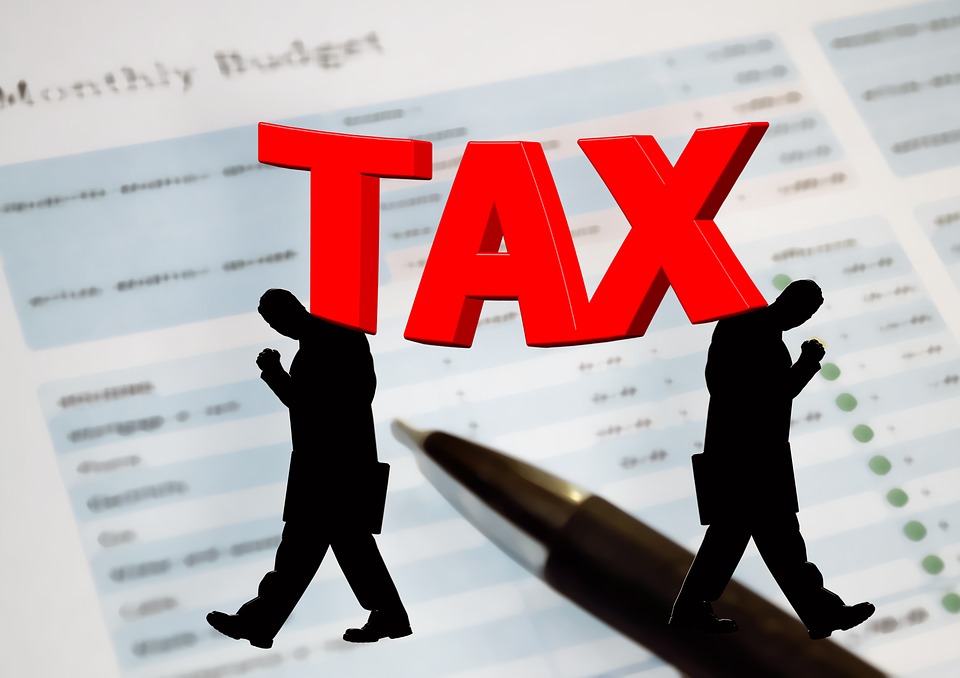latest
Strong support for surtax ahead of necessary vote

By Colin A. Young
State House News Service
MAY 5, 2021…..Many specifics around the proposal to levy an additional tax on households who earn more than $1 million a year are still up in the air, like when the Legislature might take the vote necessary to put the question before voters and just how much new revenue the proposal might generate.
But Raise Up Massachusetts, the coalition of labor, community and faith-based groups that has secured minimum wage increases, a new paid family and medical leave program and guaranteed earned sick time in recent years, launched its campaign Wednesday to grow and solidify what supporters said is already strong support for the constitutional amendment that could go before voters in 2022 if the Legislature votes this session to advance it.
“What we’re here to do today is to really reflect that we are not waiting around … we’re not waiting for that vote to happen to start talking to voters, to start building the statewide organization that we know is necessary to win in next November,” Andrew Farnitano, a spokesman for Raise Up, said. “So we’re starting to do that work of local organizing, and all across the state, and really move into campaign mode. We know it’s gonna be a big campaign and we’re excited to have 18 months to really talk to voters and communicate about the importance of this.”
If the income surtax question is put on the November 2022 ballot, all indications are that the ensuing campaign would be a political slugfest. Surtax supporters tried to put the question to voters in 2018, but the Massachusetts High Technology Council and others challenged the citizen petition that would have implemented the new tax on the wealthy and the Supreme Judicial Court struck it down. The latest version is not subject to the same level of scrutiny since it’s been filed by legislators.
Democrats on Beacon Hill have been pursuing the tax policy change for years and supporters say the surtax could generate more than $2 billion per year, earmarked for education and transportation, in Massachusetts without dipping into the pockets of most residents.
“Working families here in the commonwealth are tapped out with the high cost of housing, health care, transportation, child care and other day-to-day expenses. … Although they would greatly benefit from greatly increased public investments in K-12, preschool, higher ed, and a better transportation system, they cannot afford to pay any higher taxes to fund these investments,” Sen. Jason Lewis, the Senate co-sponsor of the amendment, said. “Wealthy families that have benefited the most from the economic growth of the past four decades, and over the past year during the pandemic, can certainly afford to pay slightly higher income taxes to fund these critical investments.”
But critics have long said it could prompt wealthy residents to move out of state and encourage employers to steer clear of Massachusetts, especially as remote work trends become a more normal part of society.
Last week, the Massachusetts Taxpayers Foundation said the proposal does not “meet the standards of a sound tax policy,” that the projected new revenue is unlikely to materialize and that it is “absolutely not” sensical to advance the surtax idea now. The business-backed organization asked lawmakers to wait until 2022 to decide whether to put the question before voters.
And the Pioneer Institute has been busy churning out reports zooming in on various aspects of the proposal and detailing the reasons a graduated income tax structure should be rejected. In testimony last week, Pioneer Institute Executive Director Jim Stergios said the proposal “undermines what we believe is the prudent and most vital focus of public policy after the pandemic — getting those out of work back to work.”
Rep. Jim O’Day, who co-sponsored the amendment in the House, said he rejects the argument that the Legislature should put the surtax amendment on hold because of the pandemic and that he believes “firmly with every iota of strength that I have” that this is the right time to advance the proposal.
“If you look at what’s going on on Wall Street, you’ll know that Wall Street is doing just as well. Main Street, maybe not quite as well as we need for Main Street to be doing. So, for me, the excuse of the pandemic somehow raising additional concerns, additional issues, with whether or not this particular piece of legislation should not continue to go forward is really a red herring,” he said.
As it formally kicked off its campaign Wednesday, Raise Up Massachusetts also said 73 percent of the 600 Massachusetts residents who responded to an online questionnaire said they support adding a 4 percent surtax on annual household income greater than $1 million, though opponents took issue with the way the survey was conducted. A MassINC poll of registered voters found similar levels of support late last year.
The Path to the 2022 Ballot
In June 2019, House and Senate members voted 147-48 in favor of the amendment that would impose the 4 percent surtax on household income above $1 million. The change is proposed as a constitutional amendment because the constitution currently requires that a tax on income be applied evenly to all residents. The state income tax rate is currently 5 percent.
To go before voters on the November 2022 ballot, the amendment must also win at least 101 votes of support among the 200 state legislators at a Constitutional Convention in the current legislative session.
O’Day said no date has been chosen for the Constitutional Convention to consider the income surtax amendment proposal. There is a joint session of the House and Senate planned for May 12, but O’Day suggested the surtax will not be up for debate next week.
“I was hopeful that maybe it would be May or June for us to have the Constitutional Convention. That’s not to say we wouldn’t, but I’m more apt to think that that timeline it would probably be sometime September, October, November,” he said. “I think if we’re getting into November and we haven’t had this hearing, then I think some additional pressure would really need to be brought to bear but I don’t anticipate that.”
O’Day and Lewis each said they have had positive conversations with other lawmakers about moving forward on the surtax amendment and said they have not noticed any slump in enthusiasm for the idea.
“All the conversations that I’ve been having very recently with my Senate colleagues, including the Senate president, is that the support and enthusiasm for the Fair Share amendment is as strong as ever,” Lewis said. “I’m very confident the Legislature, House and Senate, will move forward and take that final vote. We don’t know the exact timing of that yet but I expect it’ll be in the not too distant future.”
Because she presides over the Constitutional Convention, Senate President Karen Spilka holds the power to bring any proposal to the floor at her desire. Spilka’s office did not respond Wednesday when asked if she has any plans to raise the issue next week.
Cloudy Revenue Estimate
Supporters of the amendment point to a Department of Revenue estimate from 2015 that pegged the additional revenue that the surtax could generate in the 2019 tax year at $1.6 billion to $2.2 billion, with $1.9 billion identified as the median. Raise Up officials acknowledged Wednesday that DOR’s estimate is somewhat outdated but said the surtax could bring in even more money than initially projected.
“Since then, we know our economy has grown, we know that there are a lot more annual incomes over a million dollars. So, by all estimates, the amount of revenue that would be coming in would be larger than that $1.9 [billion] midpoint estimate,” Phineas Baxandall, a senior policy analyst at the Massachusetts Budget and Policy Center, said. “It might be quite a lot larger as better education and better infrastructure allow our economy to grow even faster and we have more income that would be subject to it as a result of the improvements that we could invest in.”
In its report on the surtax proposal last week, the Mass. Taxpayers Foundation said it thinks it is “unlikely” that the new tax revenue DOR projected could be generated by the surtax will ever materialize.
“DOR’s revenue estimate is static, meaning it assumes all else stays the same other than the tax change. It does not consider the affected taxpayers’ change in behavior as a result of this tax increase, or its impact on the larger economy, which makes its results less reliable than if a dynamic estimate which considers these factors were conducted,” the group wrote. “Affected taxpayers are likely to react to the tax increase in ways that could have a material impact on the estimated revenue collections.”
–





You must be logged in to post a comment Login